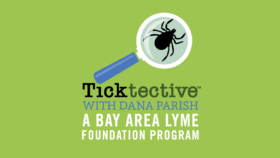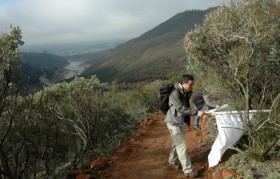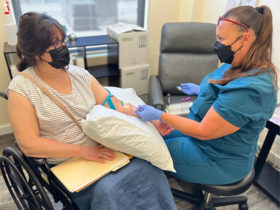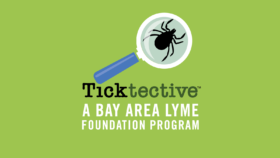By Bay Area Lyme Foundation FOR IMMEDIATE RELEASE
New Study Finds American Dog Tick Populations Expanding into Colorado, and Identifies Rocky Mountain Wood Ticks in 5 More Counties Than Documented by CDC
Citizen scientists contributing to Bay Area Lyme Foundation’s Free Tick Testing program assist in identifying ticks capable of carrying disease in Colorado
Portola Valley, CA, October 25, 2022—Bay Area Lyme Foundation, a leading sponsor of Lyme disease research in the US, today announced results of a study published in the November issue of the peer-reviewed journal Ticks and Tick-borne Diseases demonstrating that ticks capable of carrying diseases, including Rocky Mountain spotted fever, Colorado tick fever and the neurotoxin that causes tick-borne paralysis, pose an emerging threat in Colorado. The results show American dog ticks are very much present in 16 counties in Colorado, where they were not previously identified by the CDC, and Rocky Mountain wood ticks are found in 38 of the 64 Colorado counties, whereas they had only been identified in 33 previously. The study leveraged several sources for the study, including ticks collected by citizen scientists as part of a free tick testing program offered by the Bay Area Lyme Foundation.
“The critical takeaway from this study is that Coloradans need to take preventative measures against ticks when outdoors, such as tick checks, and doctors should be more vigilant for symptoms of tick-borne diseases including those carried by Rocky Mountain wood ticks and American dog ticks,” said Linda Giampa, executive director, Bay Area Lyme Foundation. “This ecology study illustrates the power of leveraging citizen science, and we are grateful for the more than 20,000 ticks that were submitted to our national program and made this study possible.”
Conducted by researchers from Colorado State University and funded by the Bay Area Lyme Foundation, the study aimed to quantify the current county-level distribution of Rocky Mountain wood ticks, Dermacentor andersoni, and American dog ticks, Dermacentor variabilis. The study evaluated data from ticks collected by citizen scientists and evaluated at Northern Arizona University as part of Bay Area Lyme Foundation’s Free Tick Testing program, distribution data from the Colorado Department of Public Health and the Environment, veterinary surveillance at Oklahoma State University, and literature data.








